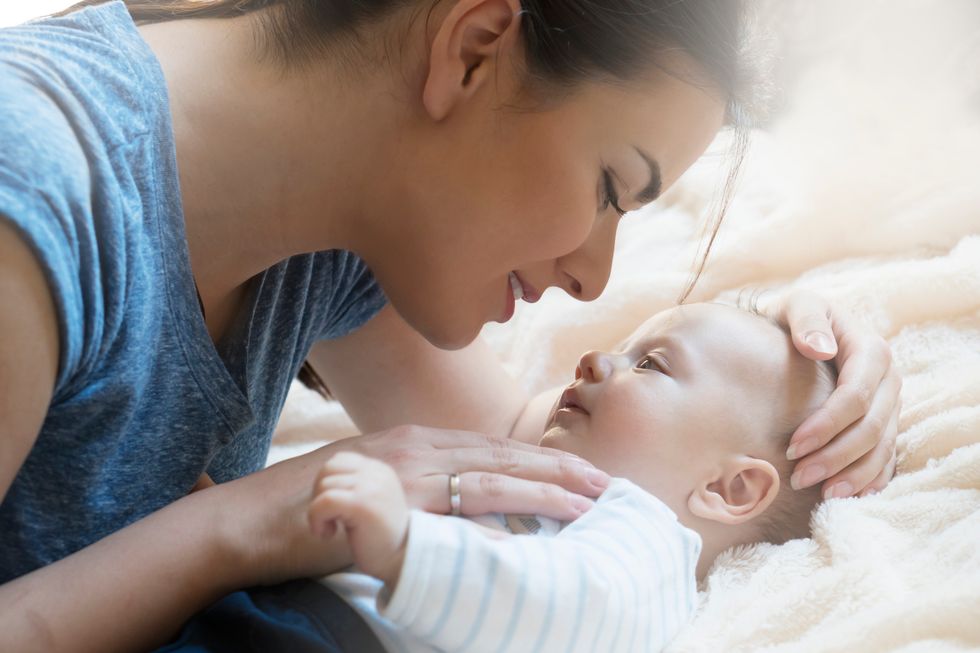
iStock.com/BakiBG
Just Gaze Into Your Baby's Eyes
Eye contact between parents and their infants has many benefits. A new study shows it actually helps synchronize their brain waves.
Dec 02, 2017
Dec 22, 2022
Pregnancy & Postpartum
Learn about our editorial policies

FRIDAY, Dec. 1, 2017 (HealthDay News)—Gazing at your baby may do more than strengthen that bond with your newborn, a new study suggests.
Eye contact between parents and their infants actually helps synchronize their brain waves, researchers report.
"When the adult and infant are looking at each other, they are signaling their availability and intention to communicate with each other. We found that both adult and infant brains respond to a gaze signal by becoming more in sync with their partner," said study lead author Victoria Leong.
She's an affiliated lecturer in the department of psychology at Cambridge University in England.
"This mechanism could prepare parents and babies to communicate, by synchronizing when to speak and when to listen, which would also make learning more effective," Leong said in a university news release.
Learn More: A Healthy Start: Bonding With Your Adopted Baby
Previous studies have shown that when parents and their infants interact, it leads to synchronization of things such as gaze, emotions and heart rate, the researchers noted. But it wasn't clear if their brain activity also synchronizes.
To find out, the Cambridge researchers conducted experiments with 36 parents and their babies.
They measured patterns of brain activity via electrodes in skull caps worn by the participants. They compared the infants' brain activity to that of the adult who was singing nursery rhymes to the infant.
The investigators discovered that eye contact between the two triggered brain wave synchronization.
Study coauthor Sam Wass stressed, "We don't know what it is, yet, that causes this synchronous brain activity. We're certainly not claiming to have discovered telepathy!
"In this study, we were looking at whether infants can synchronize their brains to someone else, just as adults can. And we were also trying to figure out what gives rise to the synchrony," said Wass, who's also with Cambridge's department of psychology.
The study was published Nov. 28 in the Proceedings of the National Academy of Sciences.
SOURCE: University of Cambridge, news release, Nov. 29, 2017
Copyright © 2017 HealthDay. All rights reserved.